It’s not so long ago that the commetariat was talking about the end of Qantas, at least as an international airline. The airline’s problems could not have been more serious – high fuel prices, unions willing to destroy the company rather than compromise, unfair competition from foreign government airlines and the heavy burden of the misguided CO2 tax. In response to guerrilla tactics by the unions, CEO Alan Joyce grounded the airline and did what any business has to do but bureaucracies don’t − cut costs. Joyce was under attack everywhere, with Senator Xenophon calling for his head as if he were the proprietor. With the current turnaround, a generous bonus to employees and a return of capital to the shareholders, his critics should admit they were wrong and apologise.
The government should resist calls for a double dissolution, which can be held any time until May next year, at least not before the theft by the politicians of our preferences in Senate elections is outlawed. Both major parties went along with this until the minor parties worked out how to get into this rort. In a report on this Labor agreed with the Coalition that voters in future should be able to decide on their preferences. Curiously no legislation has been introduced on this, with suggestions that Labor is having second thoughts. What’s the point of going to a double dissolution where instead of the quota for election being 14.29 per cent, it will be 7.69 per cent? And it’s not the small parties and independents which are the problem. It’s that the sleazy political deals about those stolen preferences too often result in people nobody in their right mind would vote for being elected.
Have you noticed how publicly listed companies are now getting involved in political campaigning? It’s one thing to have companies financing political parties. It’s another for them to play politics themselves. And they always campaign for issues that go down so well with the elites like global warming and same sex marriage. Recently some executives threatened the PM they would use shareholders’ funds to pay for indigenous conventions when he refused to do so. Just like unions, small groups are using other people’s money for political purposes without their approval. Company law should provide that public companies can only adopt a political position when they have the express support of the overwhelming majority of their shareholders.
The elites were beside themselves over Tony Abbott’s decision to let the people decide on gay marriage. Peter van Onselen suggested the delay will lead to a series of suicides, forgetting that in the month after SSM was introduced into England only 351 couples bothered to call in the celebrants. Labor politicians claimed they were worried about the referendum’s cost (about $120 million), forgetting they plan to spend four times as much in a foolish repetition of 1999’s failed republic.
Why was Martin Place terrorist Man Haron Monis free to walk the streets? Had he been behind bars where he belonged, Tori Johnson and Katrina Dawson would be alive today. Charged with over 40 serious sexual offences and being an accessory to the murder of his former wife, he’d been convicted for appalling attacks on the families of soldiers who’d been killed on duty in Afghanistan. Was it the O’Farrell government’s soft bail law? Was it the magistrates, or did the DPP fail to present the police case properly? When the coroner ordered the DPP to open his files, he claimed ‘legal privilege’. The answer’s simple − rush through a bill retrospectively revoking the DPP’s privilege. The victims’ families, as well as the nation, deserve answers.
Something very nasty is going on in the trade unions. Union bosses have been stealing from some of the lowest paid workers. In the ACT, it is reported that the building industry is run as a private fiefdom of the CFMEU. In other cases union bosses have traded away wages and conditions, with Bill Shorten receiving $40,000 from a labour hire company for his campaign to get into parliament. He declared it just before he was about to appear before the Heydon Royal Commission. The commission has heard allegations of criminal activity including death threats. There have been arrests and references to various prosecutors.In the meantime Labor has blocked both restoring the ABCC which had a superb record in cleaning up the building industry, and legislation to subject union bosses to the same rules which apply to company directors. In fact as soon as they got into government in 2007, Labor fulfilled their promise to the union bosses to destroy the ABCC, just as they are in the process of attempting to destroy the Heydon Royal commission. This is because Dyson Heydon didn’t give the Garfield Barwick lecture, unlike the several judicial lectures given to the Society of Labor Lawyers. But even if Heydon stood down, a replacement would be found and the Royal Commission would continue. The fact is that from Bill Shorten down, a large chunk of the Labor caucus were once – you guessed it – union bosses. Union bosses used to come from the shop floor. Now they’re recruited from university Labor clubs and the many apparatchiks who work for Labor MPs. They have little in common with blue collar workers. They are schooled in Machiavellian manipulation, their principal ambition being a safe seat with the rivers of gold from this and stream of subsequent jobs for the boys whenever they decide they need to be more with their families, as well as collecting their golden handshakes. No wonder they are so keen to protect these rackets.
In their obsession to bring down Tony Abbott, the commentariat has no shame. For them SAS Capt Andrew Hastie’s sin was daring to stand as the Liberal party candidate for Canning. The Age had a front page story linking him to investigations about SAS soldiers accused of cutting off the hands of dead Taliban insurgents for identification purposes. Rather than damage the soldier, the Age’s low act was an own goal. From the broadcast of Hastie’s magnificent address, the electors of Canning now know how well he will represent them in Parliament.
Got something to add? Join the discussion and comment below.
Get 10 issues for just $10
Subscribe to The Spectator Australia today for the next 10 magazine issues, plus full online access, for just $10.
You might disagree with half of it, but you’ll enjoy reading all of it. Try your first month for free, then just $2 a week for the remainder of your first year.

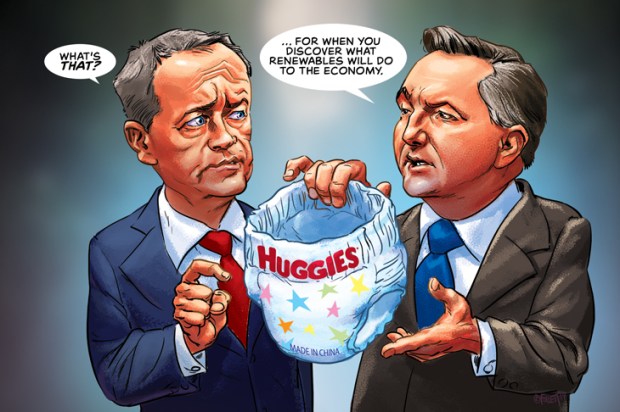

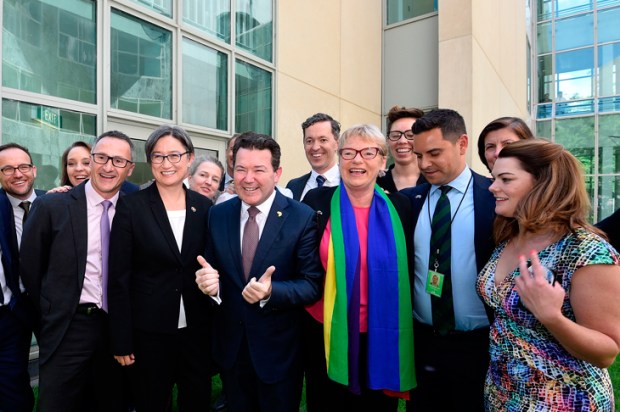
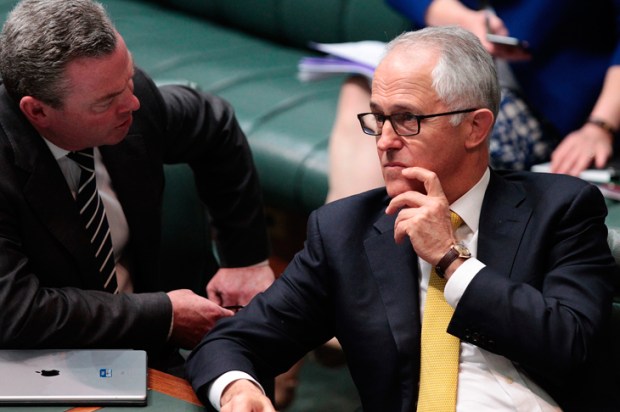
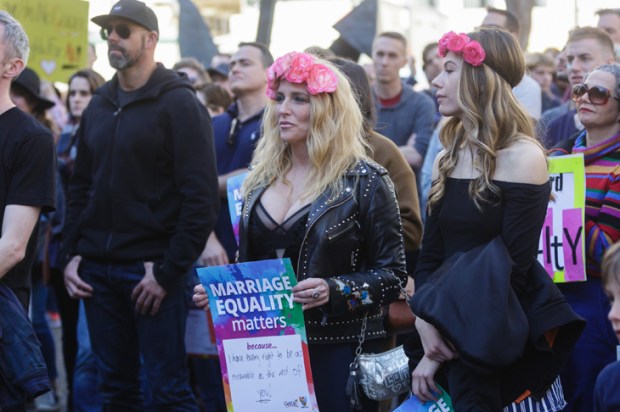
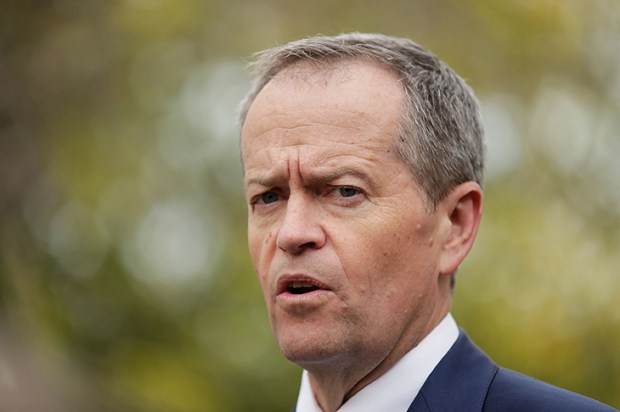






Comments
Don't miss out
Join the conversation with other Spectator Australia readers. Subscribe to leave a comment.
SUBSCRIBEAlready a subscriber? Log in